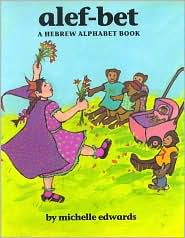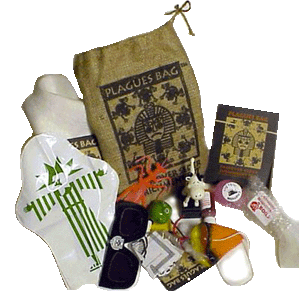I admit that I am fairly uptight about what foods I will serve my kids. We buy mostly organic produce, local dairy and eggs, and absolutely no foods with trans-fats or high fructose corn syrup. The effect on my daughters’ taste buds has been uneven. My five year old loves vegetables and brown rice and actually squeals with delight when offered seaweed for a snack. My three year old likes treats, treats, and more treats, with a few more treats thrown in for good measure. She subsists on a lot of fruit and string cheese, with cereal, scrambled eggs (with spinach – ha!), and the occasional smoothie. And, of course, a steady supply of Trader Joe’s bars.
 But for some reason, come Passover I am tempted to buy the strangest, and most uncharacteristically crappy, foods. I did my annual Passover shop last week, driving over an hour to the nearest large Jewish community. I had perused the sale flyers and had a mental list of everything I needed – turkey, chicken, your basic array of matzoh products, jelly, cooking wine, and some macaroons. Understand that the supermarket closest to my house has a Passover table. They cobble together a few boxes of matzoh, some jars of Mrs. Adlers gefilte fish, those strange but ubiquitous jellied fruit slices, and whatever else looks Jewish (usually some leftover chanukah gelt and quite possibly some chametzdik egg noodles.) But the Waldbaums? – they had AISLES of Passover food. AISLES. And as I wandered down those aisles, my friends, I mysteriously turned into someone else’s mom.
But for some reason, come Passover I am tempted to buy the strangest, and most uncharacteristically crappy, foods. I did my annual Passover shop last week, driving over an hour to the nearest large Jewish community. I had perused the sale flyers and had a mental list of everything I needed – turkey, chicken, your basic array of matzoh products, jelly, cooking wine, and some macaroons. Understand that the supermarket closest to my house has a Passover table. They cobble together a few boxes of matzoh, some jars of Mrs. Adlers gefilte fish, those strange but ubiquitous jellied fruit slices, and whatever else looks Jewish (usually some leftover chanukah gelt and quite possibly some chametzdik egg noodles.) But the Waldbaums? – they had AISLES of Passover food. AISLES. And as I wandered down those aisles, my friends, I mysteriously turned into someone else’s mom.
Marshmallows and chocolate bars? We need those. (I actually imagined my family sitting around a campfire, making matzoh smores.) Kosher for Passover Italian Ice? Only $9 a box? Definitely a must have. A tiny jar of curry sauce for $7? How could I possibly live a week without curry sauce, even though I haven’t bought curry sauce since I left Brooklyn 15 years ago? When I picked up the brick of hydrogenated cotonseed oil labeled as Passover margarine and considered it for even a split second, I should have realized it was time for an intervention.
While I stood in line at checkout, I regained at least some of my senses. Just because I can eat it on Passover, doesn’t mean I have to eat it on Passover. I did hold on to two bags of Joya sesame candies and a tub of Sabra vegetarian chopped liver, but I put back the rest of the non-essentials. (Chocolate chips are essential since I wait all year to stuff my face with matzoh toffee crunch.) I’m now planning menus that involve all of the foods we normally eat – fresh produce, fish, poultry, dairy, a few more potatoes than usual, and a limited number of whole grains. (Well, one, anyway – quinoa.)
What’s the strangest (or most exciting) Kosher for Passover purchase you’ve made?

 Every month I write a column about Jewish children’s books for the PJ Library newsletter. My new column about Michelle Edwards book, Alef-Bet, came out today. It goes something like this:
Every month I write a column about Jewish children’s books for the PJ Library newsletter. My new column about Michelle Edwards book, Alef-Bet, came out today. It goes something like this:

 Phyllis, aka Ima on the Bima, whose name was selected from the list by Random.org! Enjoy your Alef-Bet Yoga for Kids poster, compliments of Kar-Ben.
Phyllis, aka Ima on the Bima, whose name was selected from the list by Random.org! Enjoy your Alef-Bet Yoga for Kids poster, compliments of Kar-Ben.

 A couple of weeks ago I posted a listed of reasons to join a shul. My #1 reason? It’s not going to get any better without you. But what if you’re starting to wonder whether it can get any better, even with you?
A couple of weeks ago I posted a listed of reasons to join a shul. My #1 reason? It’s not going to get any better without you. But what if you’re starting to wonder whether it can get any better, even with you?
